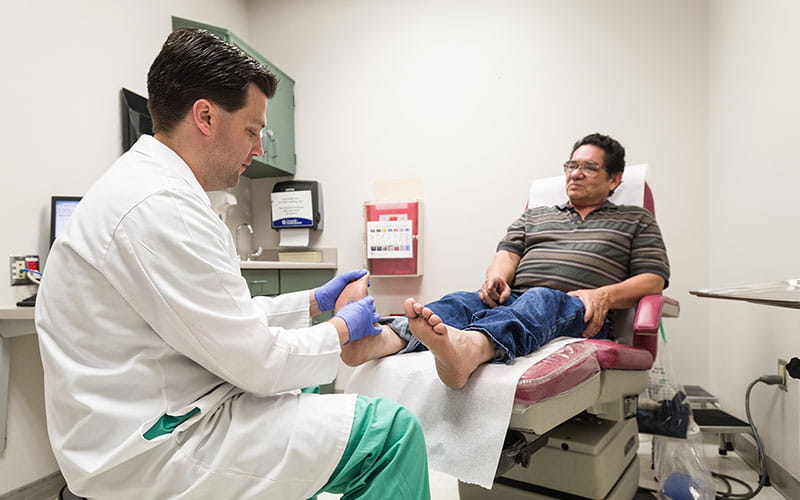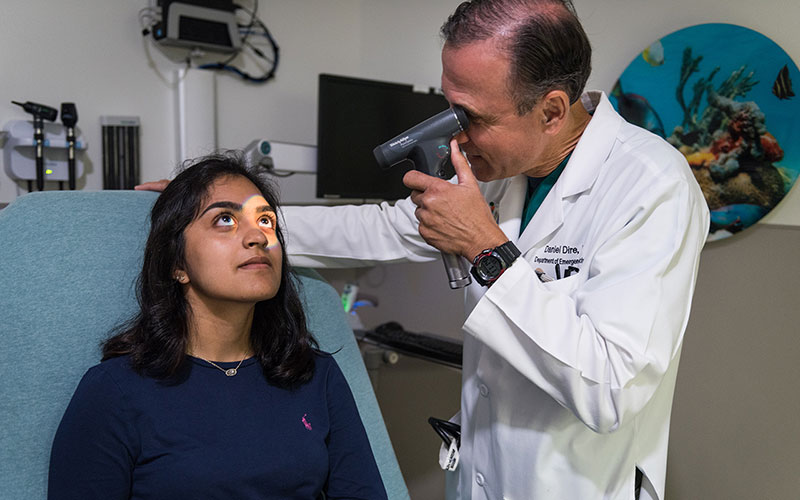Bill Phillips - Everyday Extraordinary
A transformative leader pushing us beyond what was possible yesterday
Even before the pandemic hit, Bill Phillips had a full plate that was overflowing.
As the Senior Vice President and Chief Information Officer at University Health, Phillips manages about 250 employees and at least six departments. His cybersecurity team monitors for hackers. Biomedical engineering provides the health system’s medical equipment. He oversees systems that run the billing department, computer operations and a complex network of infrastructure that connects nearly all hospital operations. His field engineers troubleshoot daily computer problems for 9,000 employees.
At the beginning of 2020, Phillips was also in the homestretch of launching the multi-year, $170 million EPIC electronic health records system, one of the biggest and most extensive modernization programs University Health has ever taken on.
Then, in March, the hospital admitted its first COVID-19 patient. A flood of others followed. Suddenly, every department Phillips manages had to pivot. Adapt. Change the way they operate as the health system battled a killer virus that was still a mystery.
Phillips admits to being a little fearful.
“You’re fearful for your staff. You're fearful you can't deliver. You're fearful if your business functions don’t work,” he said.
But overwhelmed? Nah. Phillips is a born crisis manager who is at the top of his game when the stakes are high.
“I think I thrive at my best under crisis. That's just kind of part of my DNA,” says Phillips.
A New Battle Plan
Phillips instructed the cyber team to ramp-up surveillance because hackers were targeting healthcare systems across the country. The hospital began restricting visitors to limit infections, so his staff quickly rounded-up iPads that enabled parents to see their newborns in the NICU and allowed families to talk with their loved ones being treated for COVID-19.
His team wrangled additional equipment so respiratory therapists could help the virus-stricken patients breathe. They installed temperature-monitoring stations at entrances to prevent infected people from entering the hospital.
Remote communication became the new way of meeting, seeing patients and working, which presented additional needs. Phillips team had to strengthen computer security and help thousands of staff members troubleshoot the challenges of working from home.
He needed new equipment that was becoming difficult to find.
“We're trying to buy devices to support televisits and remote meetings and things. There's a national hardware shortage. So we couldn't get hardware in to help with some of these things,” Phillips says.
Launching EPIC Despite the Pandemic
Then there was EPIC with its epic obstacles. University Health had come too far and would lose too many benefits for patients and staff by suspending the launch of its electronic record-keeping program. However, what to do about the 8,000 employees who had to be trained on the system? Phillips’ team had scheduled in-person classes that were no longer possible with the need for social distancing. The EPIC company gave Phillips permission to develop training videos.
“Oh, my gosh,” says Philips, as he remembers what that required. “This was my team sitting in their offices recording over 700 training sessions.” Then they had to ensure the employees took the classes and passed the competency tests.
In the end, EPIC launched within a few months of its target date and provided the platform for another big project aimed at ending the pandemic.
Opening a Vaccine Center
Near the end of 2020, the Food and Drug Administration approved the first COVID-19 vaccines. University Health realized it could play a role in protecting the community by creating a vaccine center that would put 1,500 shots a day in the arms of vulnerable people.
EPIC could be used to track the vaccine recipients and stay in touch with them. Opening the center, however, would require a detailed plan that covered everything from infrastructure, to pharmacy needs, to staffing and the efficient delivery of shots. There was no question who would develop and run the operation: the man who thrives on crisis and loves a challenge.
“I've done many projects in my career at this organization,” says Phillips, reflecting on his 30 years with University Health. “But this project, it’s here,” he says, teary-eyed as he places his hand on his heart.
“I can't tell you how many people want to hug me, thank me when they get (their vaccinations.) They're bringing thank-you cards back. They're bringing cookies. They feel we saved their life,” he says.
Even after weeks of 12-hour days, Phillips would not change a thing.
“I love what I do,” he says.



